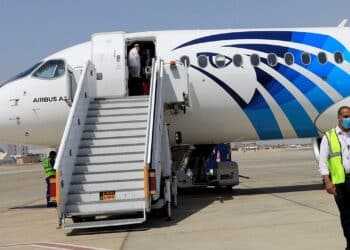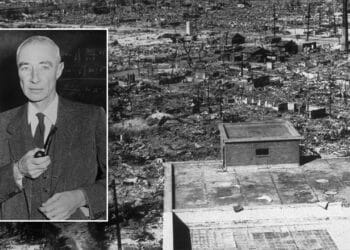The nationwide lockdown that was announced on 24th of March has been further extended till 3rd of May due to the number of COVID-19 infected patients are perpetually increasing in the country. There can be some relief in areas which are least infected with the novel coronavirus and where the outbreak is in control after April 20.
Prime Minister Narendra Modi, in a televised address to the nation, said, “Till April 20, all districts, localities and stales will be closely monitored, as to how stringently they are adhering to the lockdown. States, where hotspots are contained, could be allowed to resume some important activities.
The central government has issued a list of economic activities that will be permitted in some areas post 20 April, eying the interest of daily wagers and farmers after assessing the situation of the outbreak in a particular area.
Here's a list of activities which will be allowed after April 20
Movement of cargo
*All goods traffic will be allowed to ply.
*Operation of railways: Transportation of goods and parcel trains.
*Operation of Airports and related facilities for air transport for cargo movement, relief and evacuation.
*Operation of seaports and inland container depots (ICDs) for cargo transport, including authorised custom clearing and forwarding agents.
*Operation of land ports for cross land border transportation of essential goods, including petroleum products and LPG, food products, medical supplies.
*Movement of all trucks and other goods/carrier vehicles with two drivers and one helper subject to the driver carrying a valid driving license; an empty truck/vehicle will be allowed to ply after the delivery of goods, or for pick-up of goods.
*Shops for truck repairs and dhabas on highways, with a stipulated minimum distance as prescribed by the state/UT authorities.
*Movement of staff and contractual labour for operations of railways, airports/air carriers, seaports/ship/vessels, land ports and ICDs is allowed on passes being issued by local authority on the basis of authorization issued by respective designated authorities of the railway, airports, seaports, land ports and ICDs.
- Farming operations:
*Farming operations by farmers and farmworkers on the field.*Agencies engaged in procurement of agriculture products, including MSP operations.
*Mandis operated by APMCor as notified by state/UT government. Direct marketing operations by the state/UT government or by industry, directly from farmers or group of farmers, FPOs'co-operatives etc. States/UTs may promote decentralised marketing and procurement at village level.
*Shops of agriculture machinery, its spare parts (including its supply chain) and repairs to remain open.
*Custome hiring Centres related to farm machinery.
*Manufacturing, distribution and retail of fertilizers, pesticides and seeds.
*Movement (inter and intrastate) of harvesting and sowing related machines like combined harvester and other agriculture/horticulture implements.
Fisheries:
*Operations of the fishing (marine and inland)/ aquaculture industry, including feeding and maintenance, harvesting, processing, packaging, cold chain, sale and marketing.
*Hatcheries, feed plants, commercial aquaria.
*Movement of fish/shrimp and fish products, fish seed/ feed and workers for all these activities.
Plantations:
*Operations of tea, coffee and rubber plantations, with a maximum of 50% of workers.
*Processing, packaging, sale and marketing of tea, coffee, rubber and cashew, with maximum 50% workers.
Animal Husbandry:
*Collection, processing, distribution and sale of milk and milk products by milk processing plants, including transport and supply chain.
*Operation of animal husbandry farms including poultry farms and hatcheries and livestock farming activity.
*Animal feed manufacturing and feed plants, including the supply of raw materials, such as maize and soya.
* Operation of animal shelter homes including Gaushalas.
- Commercial and private establishments:
*Print and electronic media including broadcasting, DTH and cable services.*IT and IT-enabled services with up to 50% strength
*Data and call centres for government activities only
*Govt approved Common Services Centres at Gram Panchayat level.
*E-commerce companies. Vehicles used by e-commerce operators will be allowed to ply with necessary permissions.
*Courier services
*Cold storage and warehousing services, including at ports, airports, railway stations, container depots, individual units and other links in the logistics chain.
*Private security services and facilities management services for maintenance and upkeep of office and residential complexes.
*Hotels, homestays, lodges and motels which are accommodating tourists and persons stranded due to lockdown, medical and emergency staff air and sea crew.
*Establishments used/ earmarked for quarantine facilities.
*Services provided by self-employed persons like electrician, IT, repairs, plumbers, motor mechanics and carpenters.
- To provide an impetus to the rural economy, industries operating in rural areas, including food processing industries; construction of roads, irrigation projects, buildings and industrial projects in rural areas; works under MNREGA, with priority to irrigation and water conservation works; and operation of rural Common Service (CSCs) have all been allowed. These activities will create job opportunities for rural labour, including the migrant labour force.
- Manufacturing and other industrial establishments with access control have been permitted in SEZs, EoUs, industrial estates and industrial townships after implementation of SOP for social distancing. Manufacture of IT hardware and of essential goods and packaging are also allowed. Coal, mineral and oil production are permitted activities. It is expected that the industrial and manufacturing sectors will see a revival with these measures, and will create job opportunities while maintaining safety protocols and social distancing. At the same time, the important components of the financial sector, e.g., RBI, banks, ATMs, capital and debt markets as notified by SEBI and insurance companies will also remain functional, with a view to providing enough liquidity and credit support to the industrial sectors.
- The revised guidelines also permit all health services and the social sector to remain functional; public utilities to function without any hindrance; the supply chain of essential goods to operate without any hindrance; and, important offices of Central and State Governments and local bodies to remain open with the required strength.
- The revised guidelines also permit all health services and the social sector to remain functional; public utilities to function without any hindrance; the supply chain of essential goods to operate without any hindrance; and, important offices of Central and State Governments and local bodies to remain open with the required strength.
.
[zombify_post]










